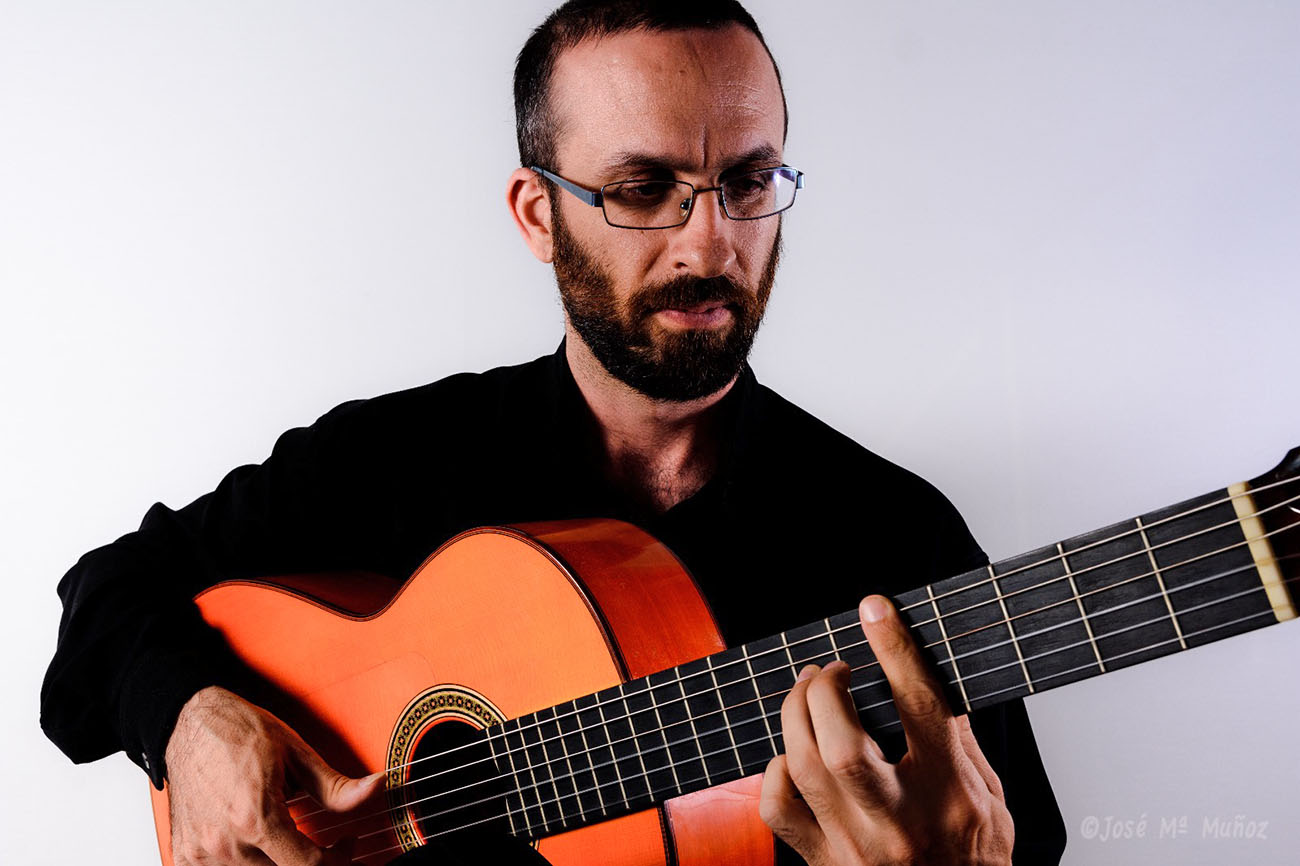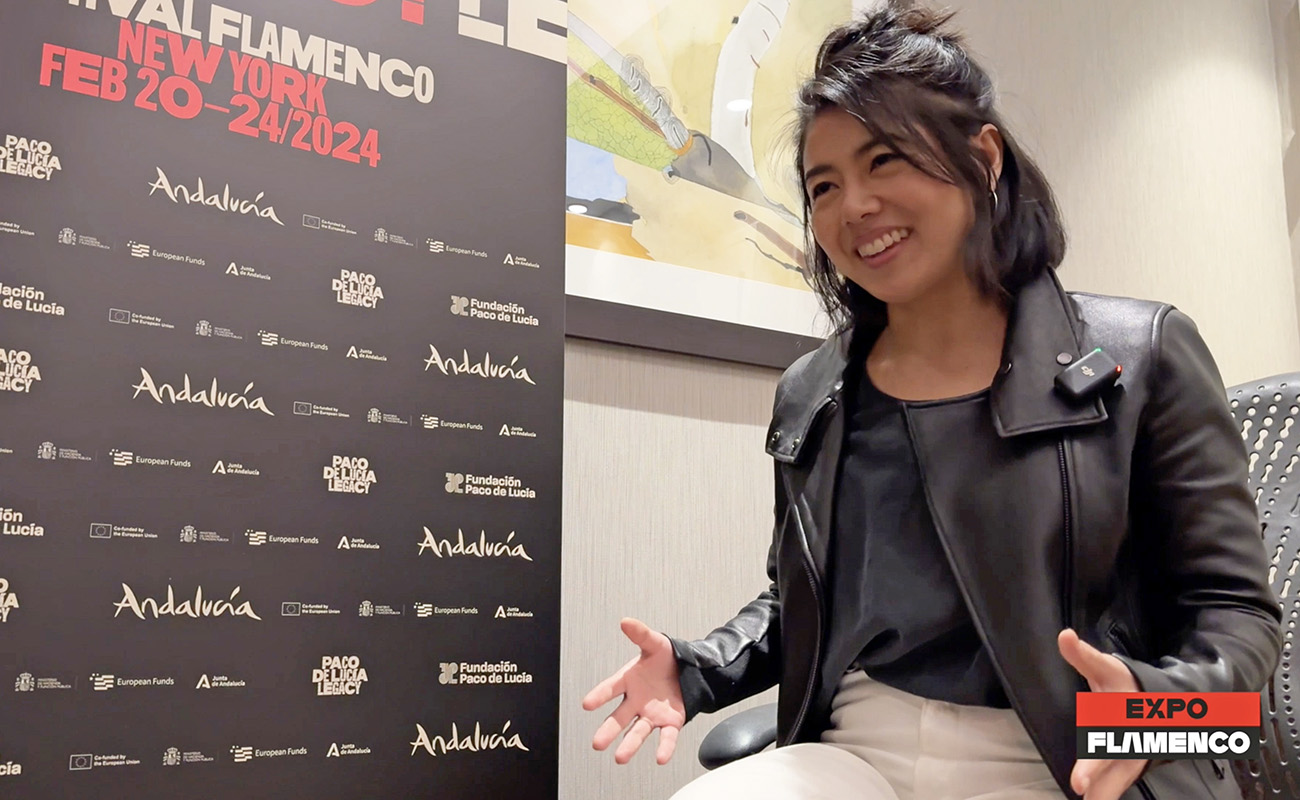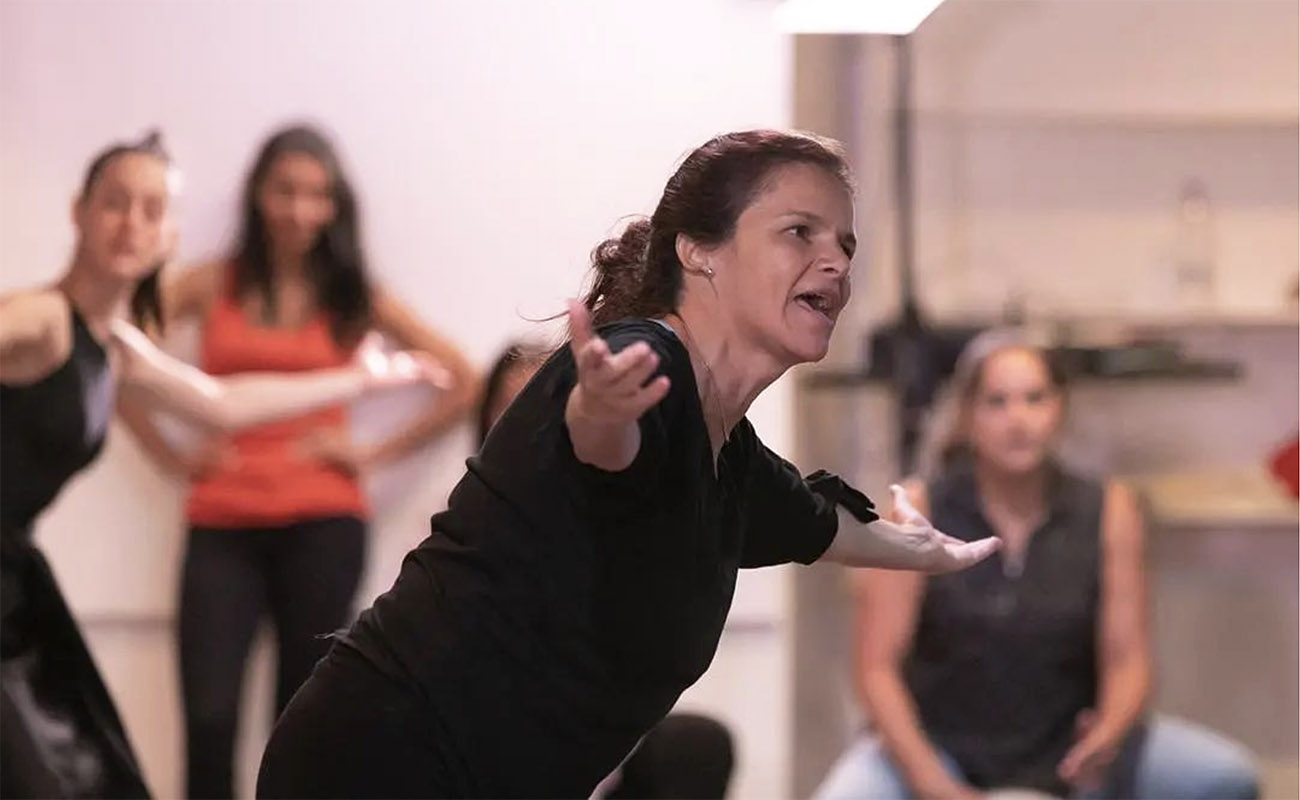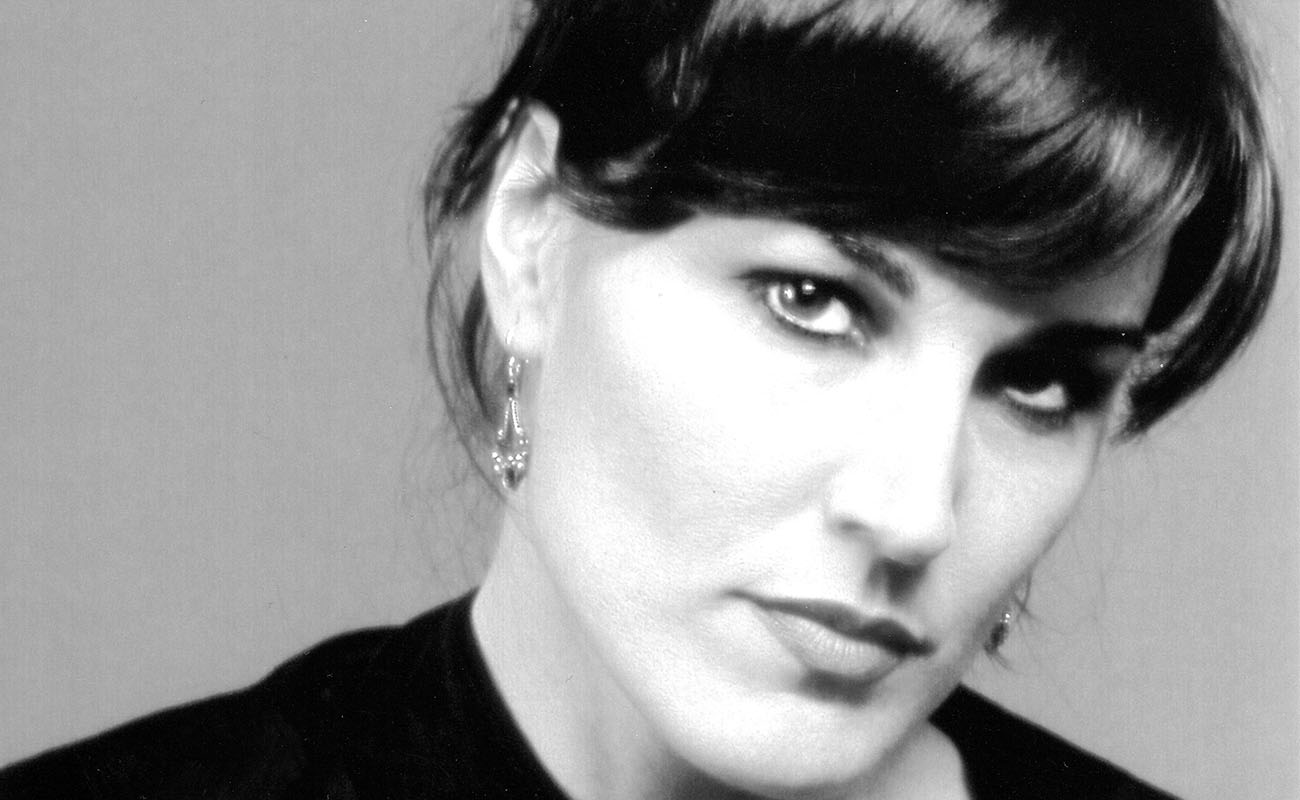Rafael Hoces: «The classroom is meant to teach knowledge and techniques. But each student must find their own way to achieve pellizco»
Rafael Hoces, renowned academic of the Conservatorio Superior de Música de Córdoba and of Granada University’s Inter-university Master of Flamenco Research and Analysis, is an authoritative voice that dispels doubts about flamenco teaching at the highest level.
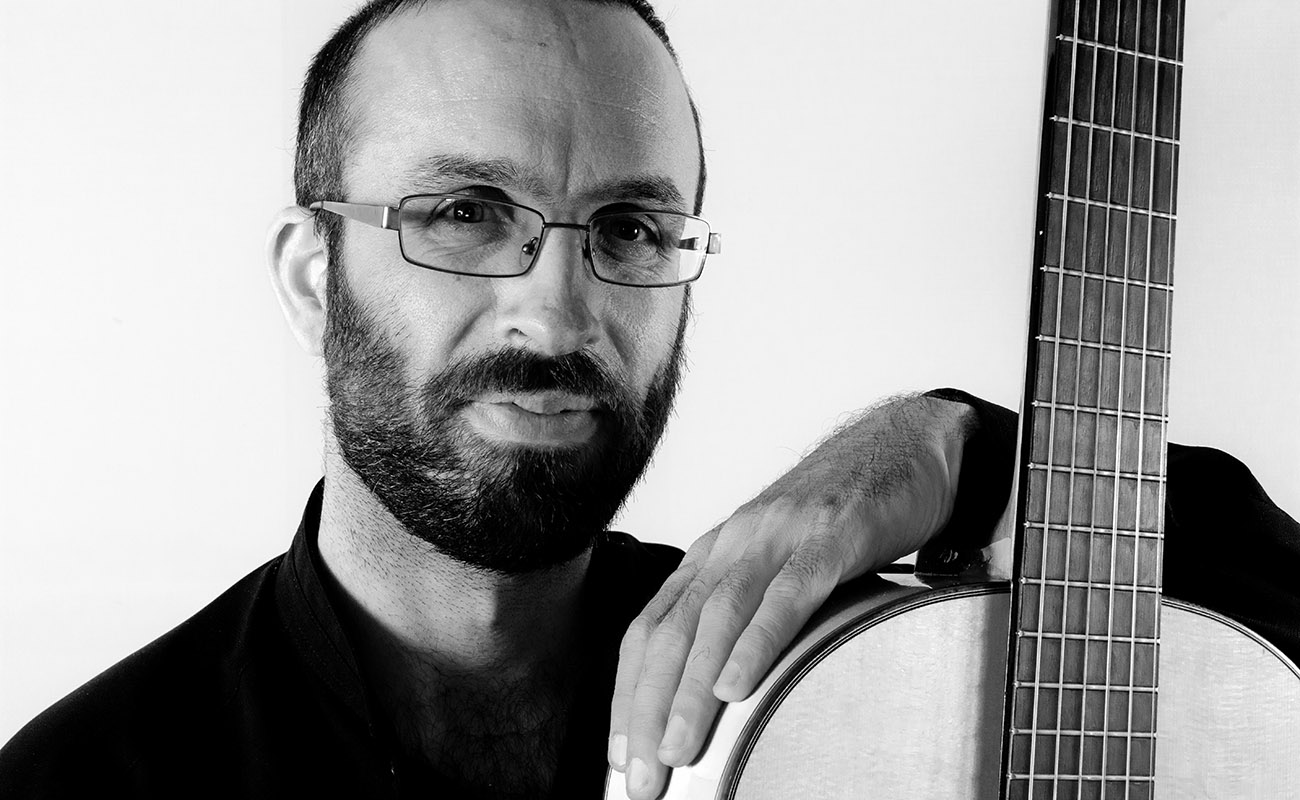
We often come across his insightful comments in debates about flamenco in Facebook. «Flamenco is experiencing the same problem as the pandemic: everyone talks as if they were expert epidemiologists, so it’s easy to find unwarranted and gratuitous opinions in the social networks», he says. Rafael Hoces Ortega, born in Figueras in 1977, teaches flamenco guitar and is a renowned academic of the Conservatorio Superior de Música de Córdoba and of Granada University’s Inter-university Master of Flamenco Research and Analysis. His authoritative voice dispels doubts about flamenco teaching at the highest level.
– There is a lot of controversy about the teaching of flamenco in schools, universities and music conservatories, isn’t it? Perhaps you can help us to sort this all out, Mr. Hoces.
– It’s a very complicated topic that I’ll try to summarize. Official flamenco studies are taught in municipal schools, conservatories and public and private universities, and all of those institutions are certified by the government as such. Only such institutions can be called “official” because the courses taught award an official degree or diploma. Then there are many other interesting offerings, but people must research them carefully to find out how useful they are, because they may be useless if the goal is to become a teacher in a conservatory or university.
– Which reputed institutes teach classes of cante, baile and toque?
– I know that conservatories follow a program dictated by norms and regulations, and that is what I consider as “reputed”. It is the opposite of the “I-teach-whatever-I-want-because-it-works-for-me” approach. It is an education based on pedagogy, on teaching science, having the students as the main focus.
– Let me rephrase it. Which is the institute with the highest prestige where cante, baile and toque are taught?
– What criteria should we use to assess prestige? Should we base it on the number of students? On how are the teachers trained? On the methodology? On the resources available? To answer objectively I would need all that information, but I do not have it. Regarding the area of regulated teaching, I can tell you that its teachers got there based on principles of equality, on their own merit and competence. The great majority have degrees in flamenco, others have a wealth of experience. Besides, the teaching is done using both the oral tradition method, as it was used for centuries in flamenco, and modern instrumental pedagogy.
«I don’t think there is any teacher of any art form who has the magic formula to invoke duende whenever they want. If they could do so, their schools would be full!»
– ¿Which official or university institutions are most committed to the study or research of flamenco art?
– Regarding conservatories, without a doubt the Conservatorio Superior de Córdoba is the one with the most flamenco specialty courses. Everything except baile, which is taught in Málaga. Another conservatory worthy of note is Seville’s Cristóbal de Morales Conservatory, which features flamenco guitar and cante. Regarding universities, I would highlight those that take part in the Inter-university Master of Flamenco Research and Analysis: the universities of Cádiz, Huelva, Pablo de Olavide, Córdoba, and Granada. The latter also has subjects that deal with flamenco in the musicology specialty, and it will host a conference about Enrique Morente. Then there is the Escuela Superior de Música de Cataluña, which also offers a degree and master in interpretation and flamencology.
– What is lacking or pending, regarding the study of flamenco in conservatories or universities?
– Knowing that other subjects such as psychology, physiotherapy, speech-language therapy, and musicology relate to flamenco, what is necessary is to integrate all those subjects into the study programs. It is necessary to build on proven, scientific knowledge to study a musical genre that has only become a subject of study very recently.
– An old headline in the Ideal newspaper stated that you are the first doctor of flamenco to graduate from Seville University. Please explain two things: the «first» part, and the «doctor of flamenco» part.
– Headlines are often very superficial. In fact, I was the first student to obtain a degree in the now-extinct first doctorate program focusing exclusively on flamenco. Luckily, there are numerous doctors who have been writing flamenco theses for decades in various programs of different universities. I hope their number keeps growing exponentially.
– One question that certainly has been asked many times before: Would you recommend your son to study in a conservatory, in an academy or rather take private lessons? That is, what do you believe is the best place to learn cante-baile-toque and where would you advise him to study as an academic or researcher of this art genre?
– Well, if he were interested in flamenco, I would certainly encourage him to enroll in a conservatory to learn the theoretical and practical aspects of our music. I think it is very important to have an officially sanctioned education. It is like when your parents tell you: “son, do whatever you want, but have a career”. This will allow them to be better prepared for the future, being able to weather a pandemic like the one we are experiencing now or to face an injury that would prevent them making a living as a performer. I would round it up telling him about my good experiences of having a master in flamenco and writing a doctoral thesis.
«Nowadays there are flamenco researchers and teachers who base their work in science and pedagogy. We should use such research and avoid texts that promote Bermuda-triangle style theories such as the idea that duende is hereditary»
– What qualities must a flamenco teacher have? Who is the best teacher you have come across?
– Well, as in all teaching professions, the most important thing is to have a vocation, a passion for teaching, besides having the theoretical and practical knowledge about flamenco and how to teach it. There are many good teachers in all subjects. In my case I have had so many good teachers that I would need a lot of space to talk about all of them and all the things they’ve taught me.
– Is it possible to learn duende and pellizco in the classroom?
– The classroom is meant to teach knowledge and techniques. Among the latter we find expressive techniques, which may lead to pellizcos. Yet, obviously, as in all musical genres, each student must find their own way to achieve that pellizco. I don’t think there is any teacher of any art form who has the magic formula to invoke duende whenever they want. If they could do so, their schools would be full!
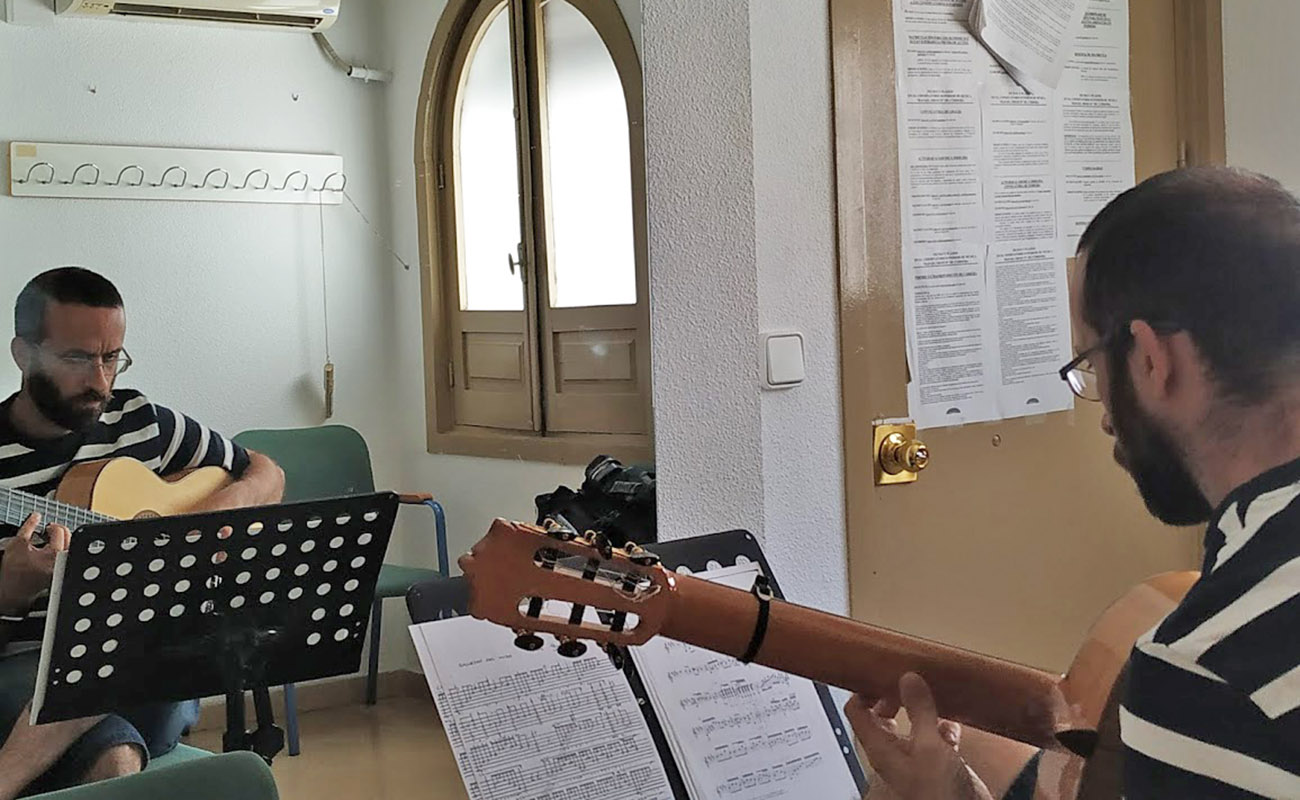 El Professor Rafael Hoces, in class at the Conservatorio Superior de Música de Córdoba.
El Professor Rafael Hoces, in class at the Conservatorio Superior de Música de Córdoba.
– We know of successful professional associations for artists and tablaos… Are there similar associations for flamenco teachers?
– Well, as far as I know, in the public realm, we are united informally. We guitarists are united at the center and we share concerns on a private level and also with other educational centers and with other flamenco specialties. There was a failed attempt to form an association a while ago, but currently there is not any association like those that have been created recently. Let’s not forget that teachers in general are unionized and we already have colleagues representing us.
– We recently heard the news that the University Carlos III y María Pagés had created flamenco’s first Expert Degree. Is that headline technically accurate?
– No, it is not. There have been other expert degree programs such as the one by UCAM in Murcia, with specializations in guitar, cante or baile, or the one by the University of Málaga in the field of flamenco theory. It is highly recommended that those seeking official flamenco courses get information from the right sources.
«Now we can see how conservatories have been adding specialties every year. The number of [flamenco] master enrollment applications is overwhelming. However, we are still lacking in some areas. For example, flamenco guitar — not to mention cante — cannot be studied in all conservatories of Andalusia. Yet, we are moving ahead, there is no turning back»
– A student of the inter-university master course stated months ago in a critical conversation in our website that there is a lack of discussion or analysis about baile flamenco in universities. Do you agree?
– Criticism, as long as it is constructive, is very necessary. I agree that we need more content, but for all specialties. If we look at the duration of the first modules of guitar, cante and baile, we can notice that all of them have the same length, so I do not see baile being sidelined. Regarding the teachers, he states that some [specialists in baile flamenco] do not take part in the master, but I do not know who he is referring to, so I’m unaware of their research careers. We must not forget the fact that to teach a in master course there are requirements and qualifications that many flamenco artists lack, sadly. Yet, this will soon change thanks to initiatives such as this.
– There has been a lot of controversy in Córdoba with two teachers of the Conservatory — Manolo Franco and Niño de Pura — expelled and then rehired, with the brief tenure of Arcángel as director of the Flamencology Chair. Do you have anything to say about this?
– Regarding what I know a little better, concerning conservatories, I can tell you that such things do not happen just in flamenco. The rules and degree requirements apply to all teachers employed by the Junta de Andalucía, so we should not feel that we are being treated differently in this aspect, for better or worse.
– Once in while, we can see you being very active in the social networks. It seems as if Facebook was invented so flamencos can criticize each other. Even flamencos with a degree, no less.
– (Laughs) I use the social networks as much as I can to stand up to the aspect of flamenco that concerns me: teaching it in conservatories and universities. That is why I try to make our work more visible, opening windows in media outlets, such as ExpoFlamenco, which show interest in what we do. Besides, flamenco is experiencing the same problem as the pandemic: everyone talks as if they were expert epidemiologists, so it is easy to find unwarranted and gratuitous opinions in the social networks
– How do you envisage the future of flamenco teaching?
– Very positively, and I am backed by facts. How much flamenco was taught in conservatories in the 1990s? Now we can see how conservatories have been adding specialties every year. The number of [flamenco] master enrollment applications is overwhelming. However, we are still lacking in some areas. For example, flamenco guitar — not to mention cante — cannot be studied in all conservatories of Andalusia. Yet, we are moving ahead, there is no turning back.
«For two centuries, people has been saying that flamenco will vanish, yet is has survived a myriad of catastrophes»
– Do you think it is normal that a sixth-grade student (and I have seen this) is asked in a music exam whether flamenco was born in Cádiz or Seville, having to pick one or the other?
– In fact, I don’t know the author of theses texts or what is the basis for such question but let me tell you something. The problem is that we continue to deal with information from traditional flamenco, based on personal experiences, without verifiable documentation, from the perspective of race. Nowadays there are flamenco researchers and teachers who base their work in science and pedagogy. We should use such research and avoid texts that promote Bermuda-triangle style theories such as the idea that duende is hereditary.
– Let’s have a break from so much studying. Tell us about your grandfather accompanying Pepe Marchena and Niña de La Puebla on the guitar.
– I used to listen to my grandfather’s stories 20 or 25 years ago. He told me that he would work almost every night, after closing his store in Huétor-Tájar, in Granada. And in many occasions he accompanied Niña de la Puebla, and probably Marchena, too, occasionally.
– Tell us your advice for fellow flamenco artists in these times of pandemic.
– For two centuries, people has been saying that flamenco will vanish, yet it has survived a myriad of catastrophes. It will survive once again! I’d like to send my words of encouragement to all those who make a living with flamenco and are suffering with the current situation.
Photos courtesy of Professor Rafael Hoces.
Rafael Hoces, professor of flamenco guitar.


